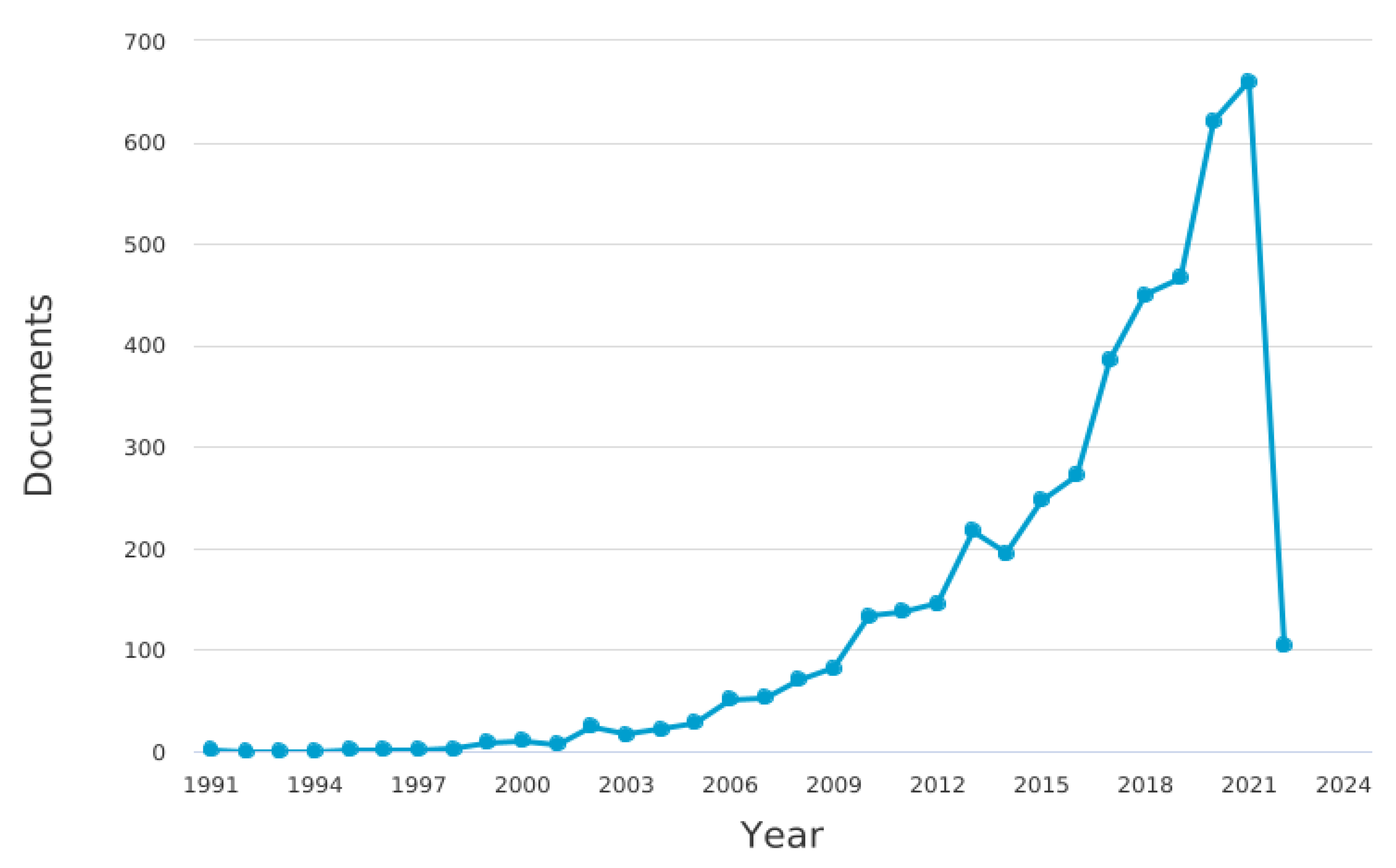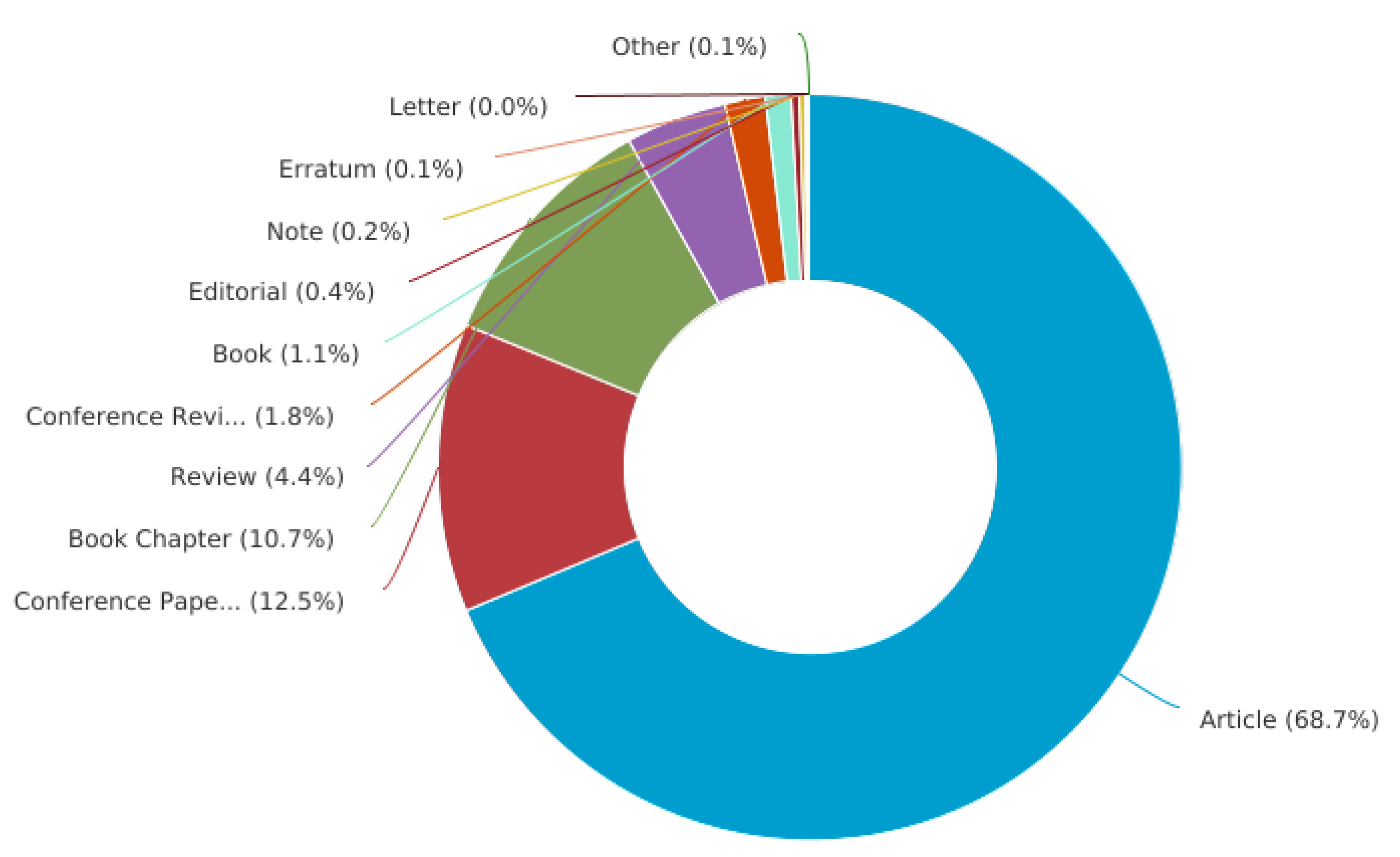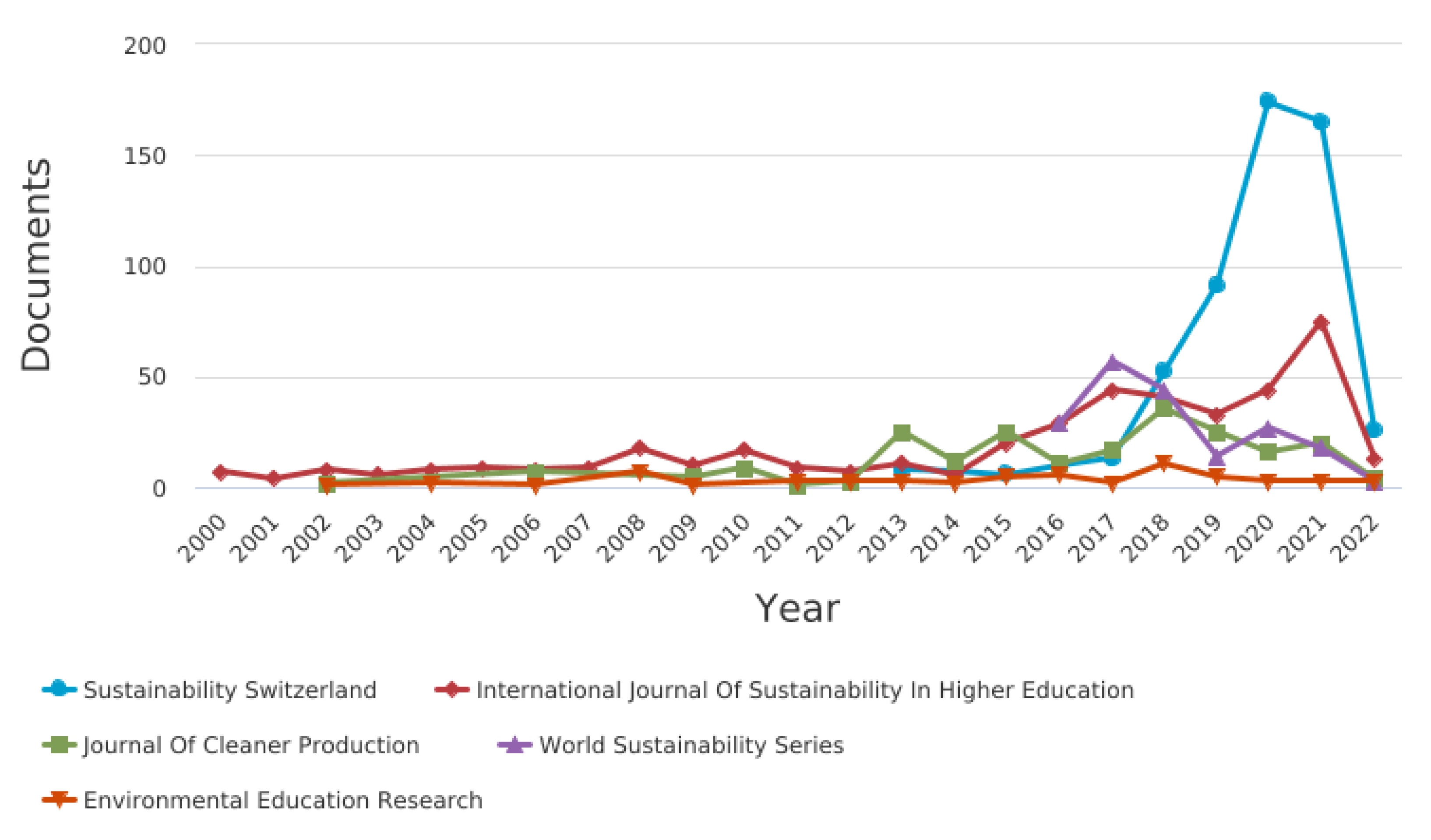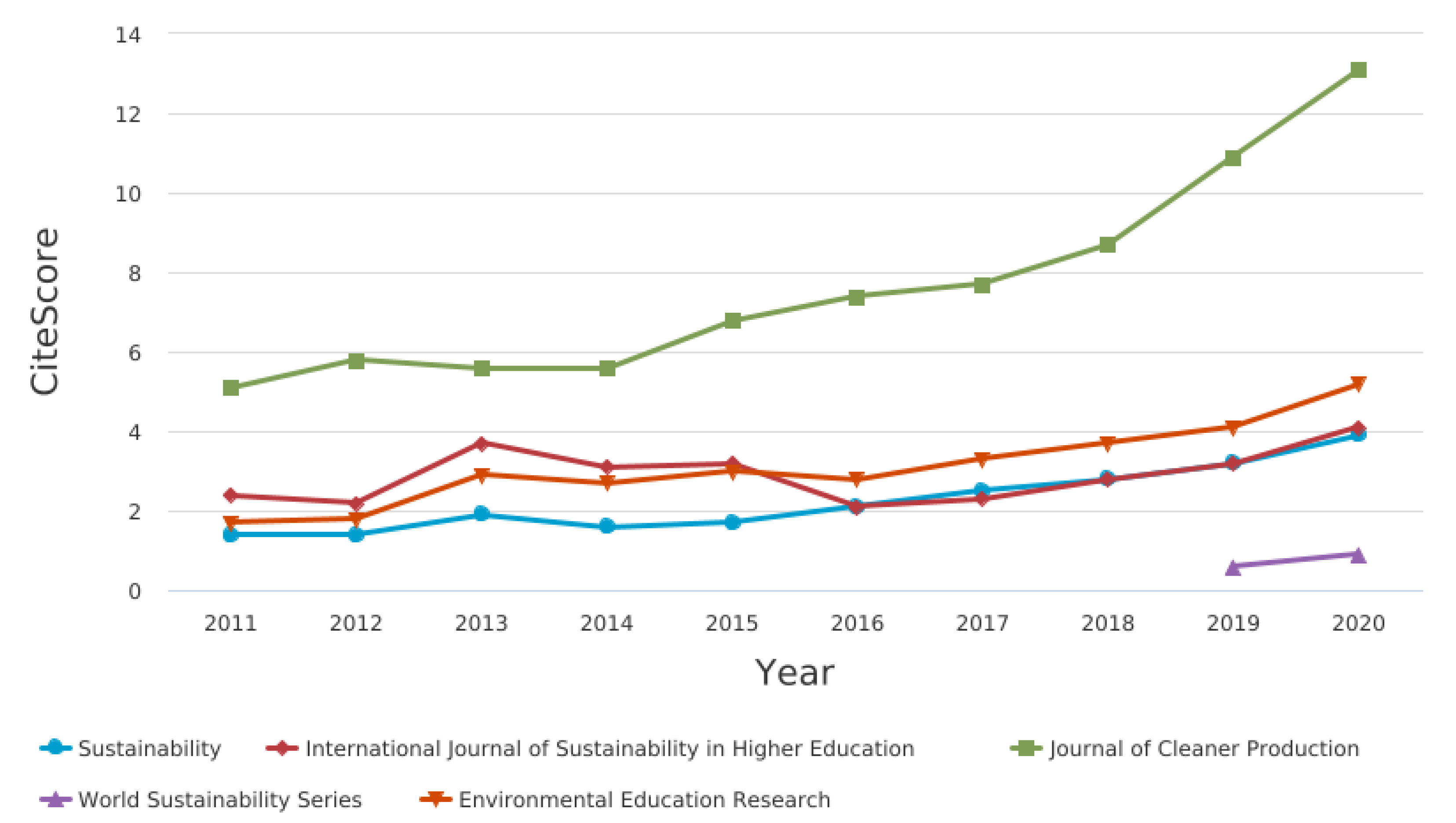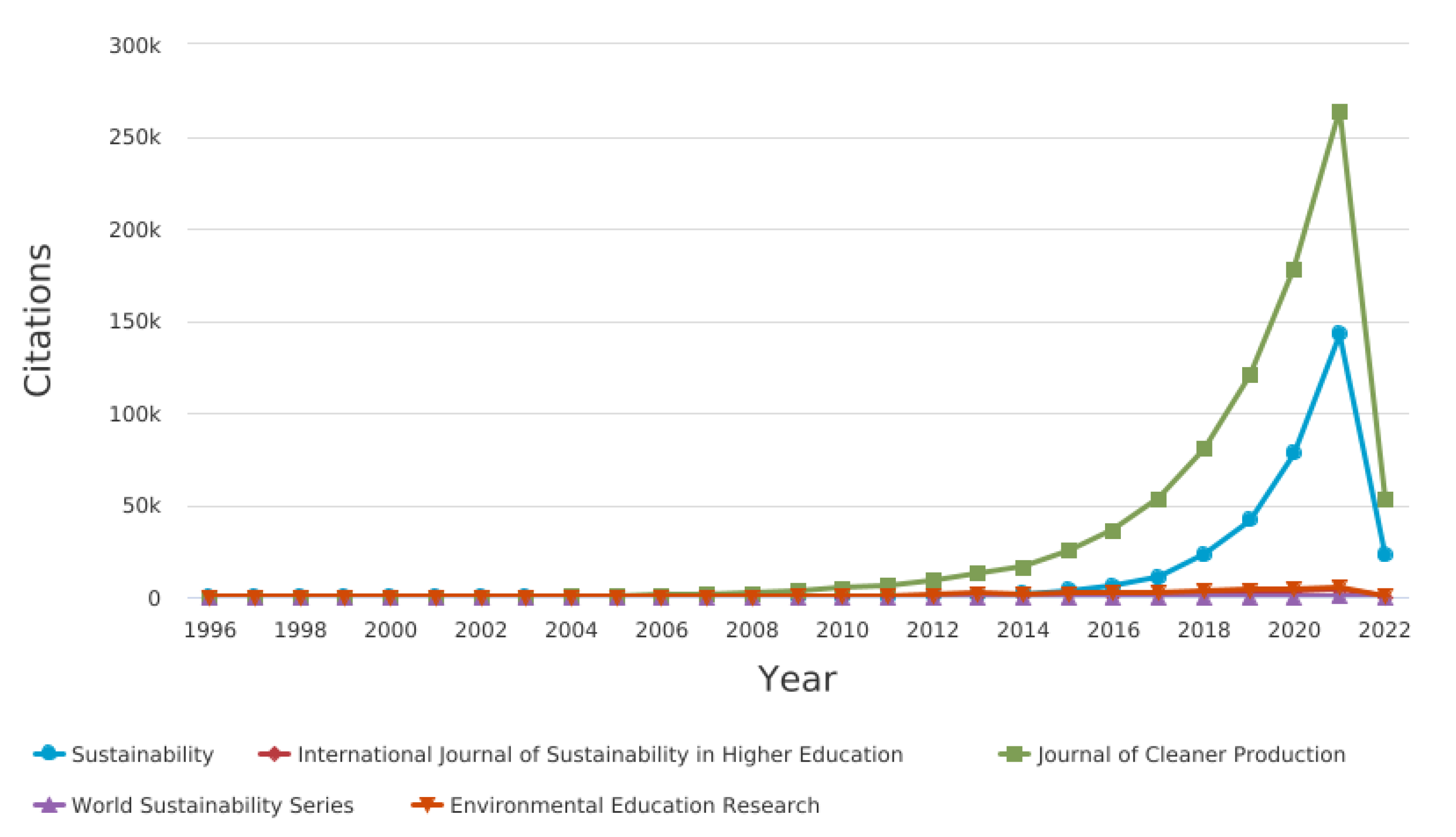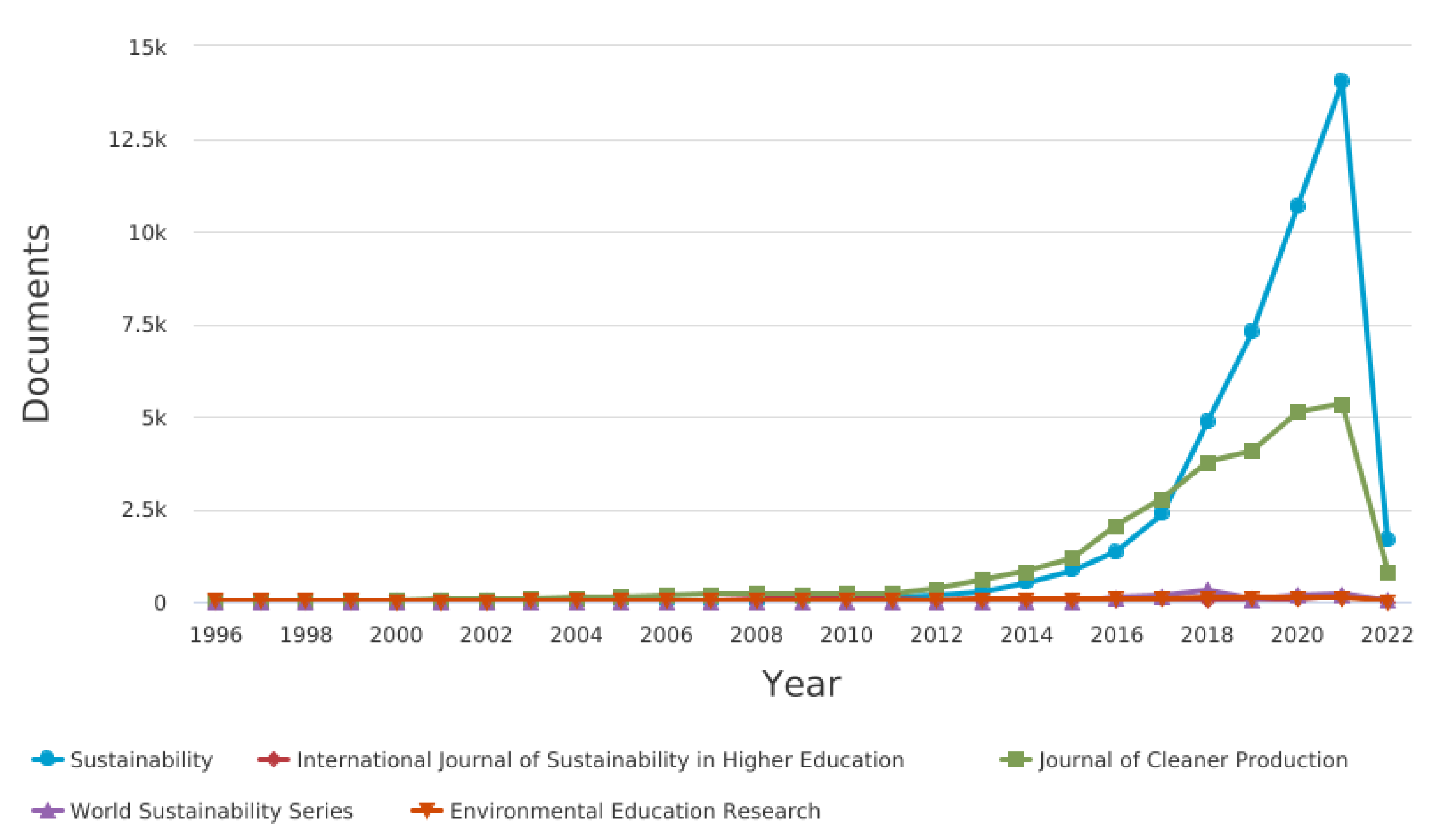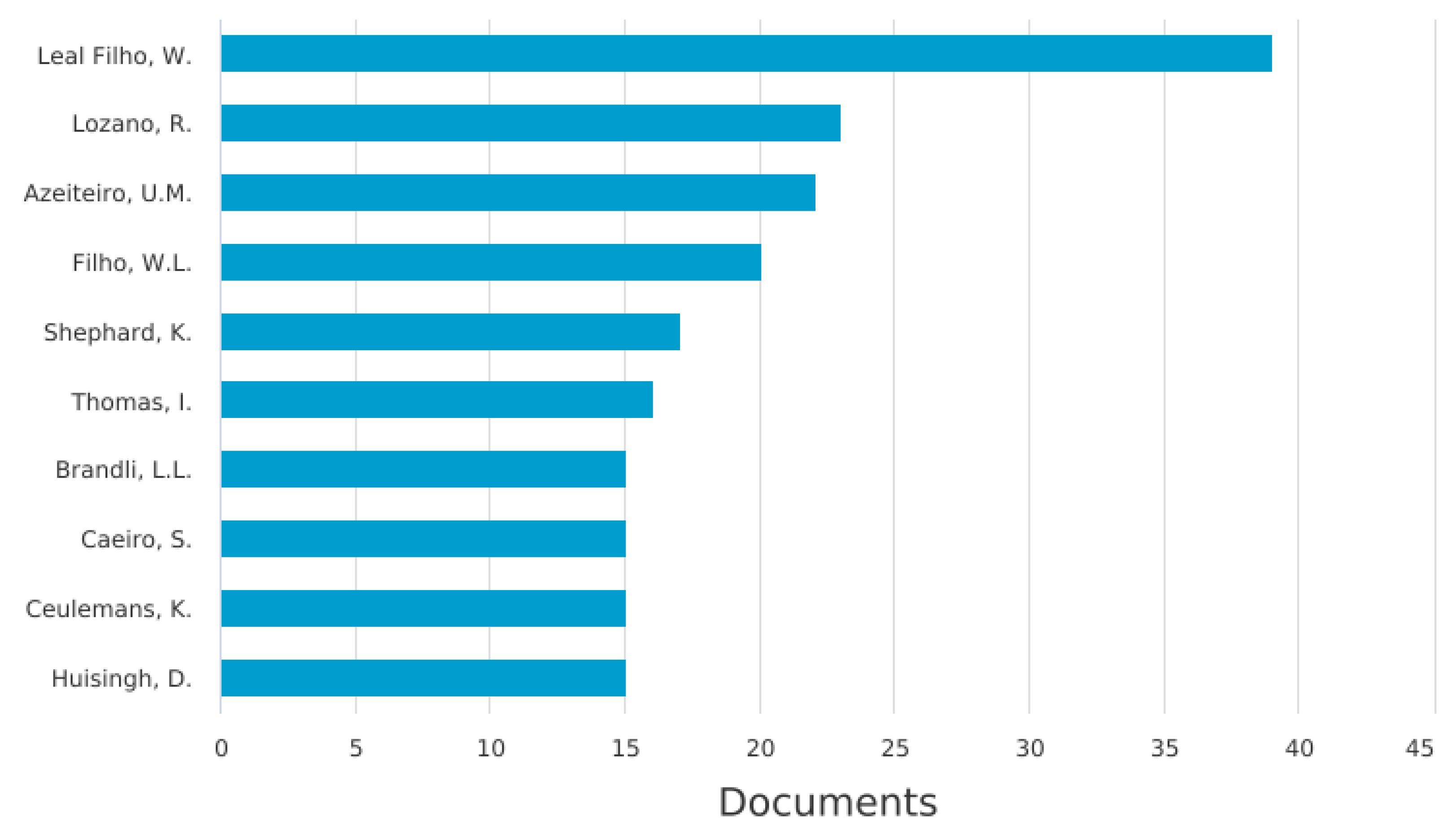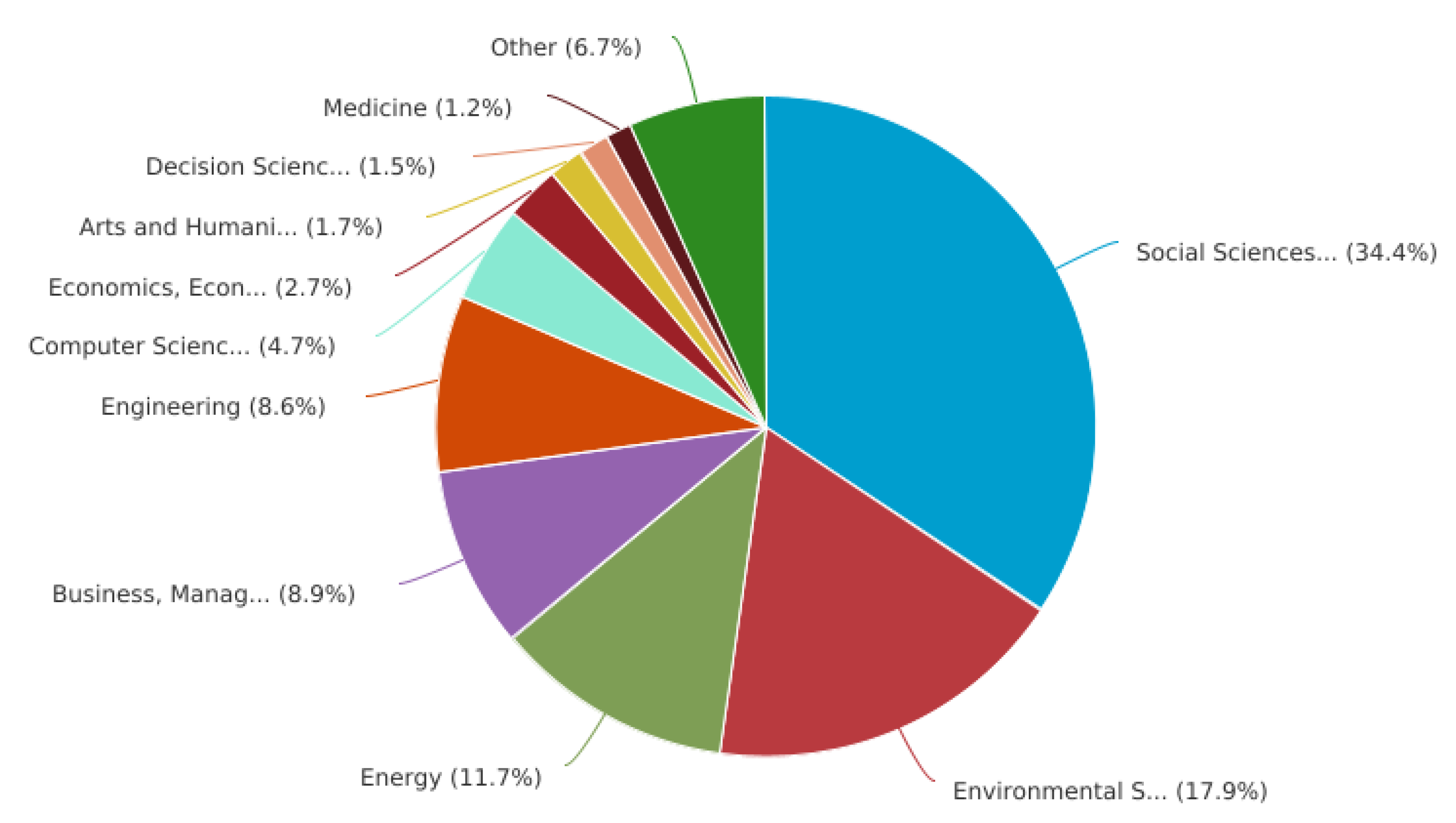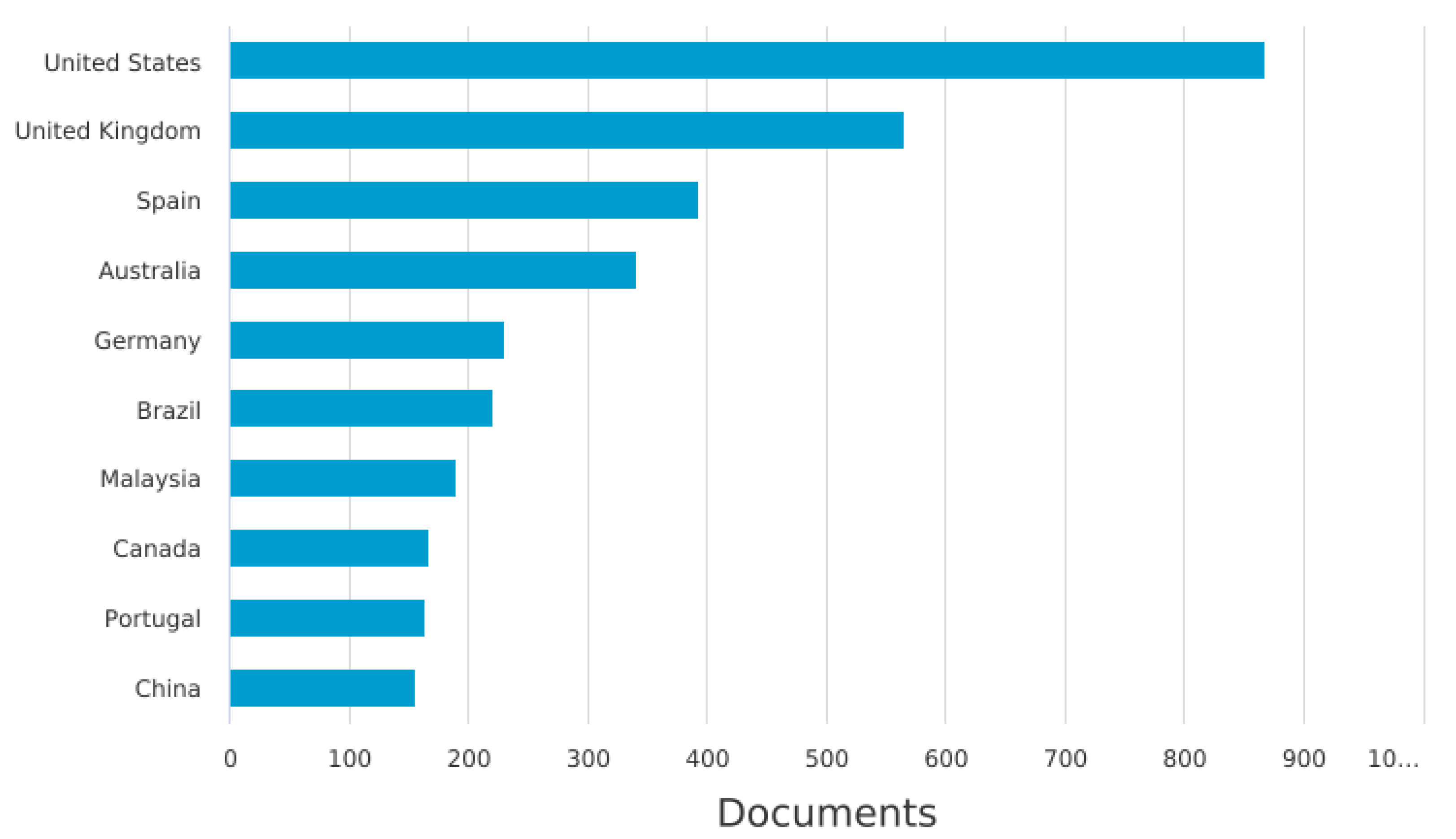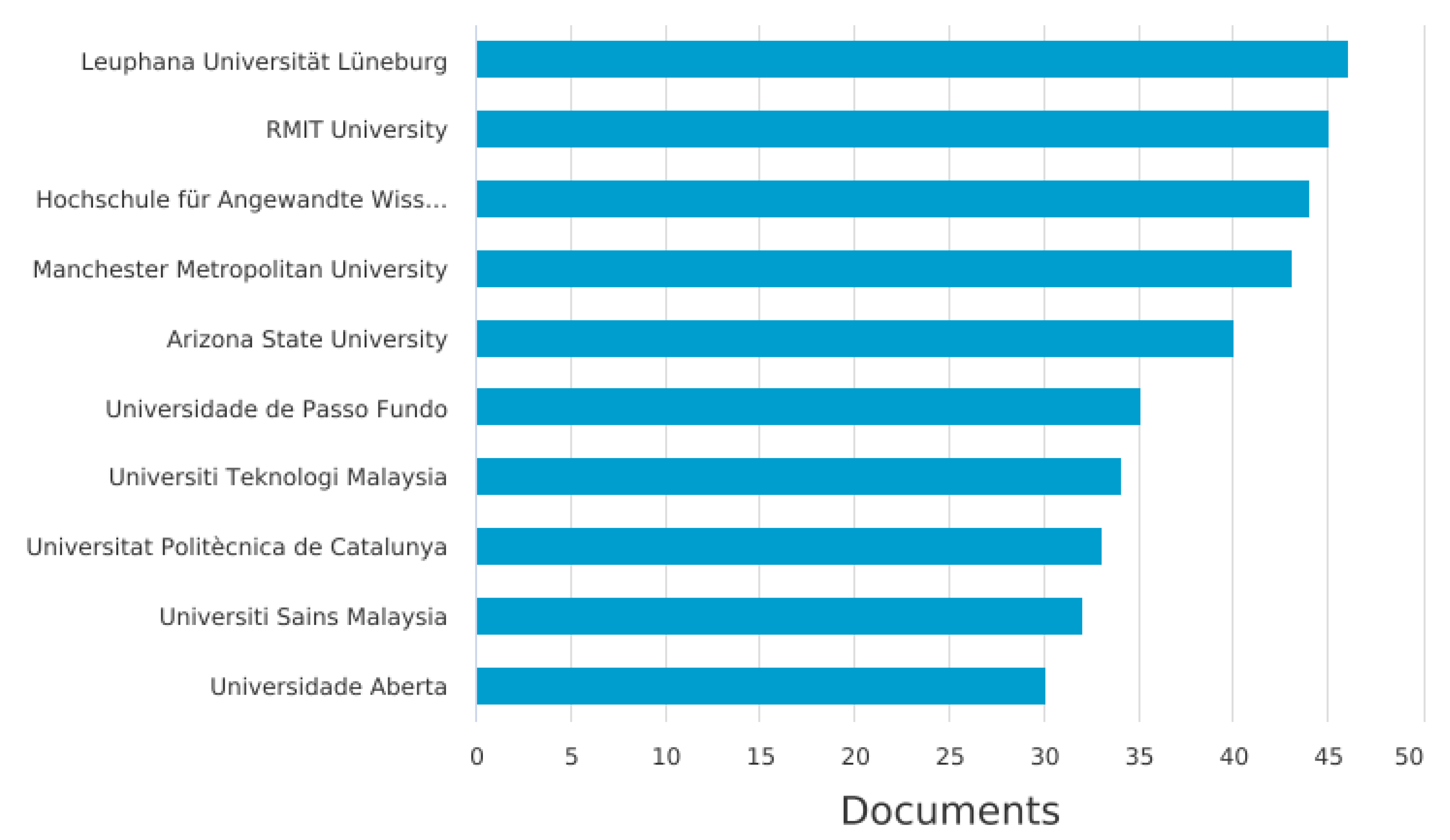Abstract
Contextualization: From a very early age, assuming more prominence over the last decades, issues related to sustainability have been taking on a particular interest in the field of research. Although initially the basic concern was at the level of environmental sustainability, the truth is that, progressively, education for sustainability, deeply linked to the science of sustainability, constitutes, together with the latter, the scientific basis for education for the sustainability in higher education, thus emerging a research niche capable of providing greater openness and interaction between higher education institutions and their surroundings. Main aims of the study: Due to the importance that this issue assumes, this article seeks to address the issue of sustainability in higher education, giving particular focus to the analysis at the level of studies that have been developed, which are the main countries and institutions where this has been most researched, as well as which main researchers have been working on this issue. Methodology: For this purpose, and using information taken from the Scopus Database, a bibliometric analysis was carried out, which based on the items “higher education” and “sustainability” allowed to identify a set of 4410 publications. Main results: The results obtained allow to conclude that the number of publications in this area has been observing a significant increase over the last 30 years, with the United States, UK, Spain, Australia and Germany emerging as the countries which publish the most, and within these the Leuphana Universitat Luneburg, RMIT, Hochschule fur Angewandte Wissenschaften Hamburg, Manchester Metropolitan and the Arizona State universities that most publish in this field of research. The five main researchers in the field of higher education for sustainability, were also highlighted. Main contributions: Theoretical and practical contributions were highlighgted, namely, the contribution for government entities and the respective HEIs to reflect on the possible synergies to be developed, as well as to establish strategies and policies promoters of a more efficient and effective investment in research in higher education for sustainability.
1. Introduction
Oscillating between the concept of weak sustainability (mechanistic/functionalist approach, in which the economic pillar appears as partially independent of social and environmental aspects) and strong sustainability (more ecological, holistic/interpretative, where the environment encompasses social and economic aspects) [1,2], sustainability corresponds to meeting our current needs without compromising the achievement of the needs of future generations. Parallel to the concept of sustainability, one come across the concept of the science of sustainability, which, still relatively recent (is developing since the beginning of the 21st century) [3], seeks to study the complex and dynamic interactions between natural and human systems, as well as how these can be sustainably transformed in a long-term perspective [4]. As this is an emerging area of research within the educational sciences, with a strong connection with the science of sustainability, education for sustainability together with the science of sustainability constitute the scientific basis for education for sustainability in higher education. One can say that this is a research niche that can contribute to a greater opening of educational institutions to society through transformative approaches, particularly with regard to the development of competences. Competences that allow students to understand that, in order to meet the current situation, they must be able to develop a critical, responsible and participatory attitude based on sustainability [5]. Education for sustainability is, therefore, based on a holistic and interdisciplinary vision, and should enable students to understand the complexity of global environmental, social and cultural configurations.
Leal Filho et al. [6] describe the achievements of the United Nations in the Decade of Education for Sustainable Development (2005–2014), with a focus on higher education. In the course of his research, Leal Filho [7] highlights that, despite more than 600 universities around the world committing to promote sustainability through the signing of international agreements and conventions, many of them have not been able, in practical terms, to implement fully the sustainability principles, for several reasons, namely, lack of institutional interest, limited material resources or involvement of teaching and non-teaching staff. For this same author [7], more than the definition of policies, or the existence of declarations or action plans, by themselves, often useless, the implementation of sustainability practices presupposes that those declarations and plans of action are supported by concrete actions, such as the introduction of appropriate curriculum, the sustainable campus, research, continuing education, cooperation with society, as well as concrete projects.
It is in this spirit that several studies have been progressively developed, published in different journals, which seek to publish and disseminate the contributions that have been promoted in the field of education for sustainability.
As an example, Reunamo and Pipere [8] presented an interesting study that explores the nature of research in education for sustainability, using a questionnaire that was applied to 83 researchers in education for sustainability, mainly from European countries. The topic that assumed the greatest relevance was the desire expressed by researchers to contribute to the development of society. To study complex and controversial topics, such as sustainability, researchers need to be aware of their preferences and orientations.
Wright and Wilton [9] and Wright and Horst [10] developed an investigation that sought to understand how administrators/managers of Universities in Canada conceptualize sustainable development, sustainable universities and the implementation of initiatives for sustainability in their institutions. The investigation was carried out using in-depth interviews with 37 administrators/managers. Although most interviewees said that universities play a fundamental role in sustainability in general, not everyone had a clear idea about the concept of sustainable development and sustainable universities. Almost all participants mentioned that environmental sustainability is the most important aspect of sustainable development. At the same time, it was also highlighted that the biggest barrier in terms of initiatives to implement sustainability in his university was related to financial resources, as well as resistance to change. Many also stated that they had never considered the subject, or had never had the opportunity to reflect or discuss sustainability at the university prior to the development of this study.
In 2016, Disterheft et al. [11] aware of the limitations still underlying the participatory approaches that have been observed in terms of sustainability assessment procedures, developed an indicator-based model, designed as INDICARE, based on which they propose a new approach in the process of assessing the sustainability of universities, as well as the involvement of the university community. The aim of this study was to introduce and discuss the model’s theoretical background, its structure and applicability, with a view to increasing the levels of participation and evaluation of sustainability in the university context.
Leal Filho, et al. [12] in their study, sought to highlight and analyze the main obstacles to the implementation of sustainable development in universities. To this end, they carried out a study in a wide range of universities around the world, based on which some of the main barriers that are felt in this matter were identified. Qualitative in nature, in a first phase, this study sought to identify the main obstacles indicated by the studied universities; evaluating, in a second phase, the importance of these obstacles. The conclusion reached was that, more than obstacles, these barriers should be understood as entrepreneurial opportunities.
With a particular focus on the Portuguese higher education, Aleixo, Leal and Azeiteiro [13], Farinha, Azeiteiro and Caeiro [14], Aleixo, Azeiteiro and Leal [15,16], have been developing an exhaustive study in terms of sustainability and sustainable development in Portuguese universities. Specifically, these researchers seek to study the perception that different higher education institutions, their managers, staff, students, external stakeholders, etc., have regarding: (a) sustainability, (b) sustainable higher education institutions, (c) the role of these institutions in promoting sustainable development, (d) the barriers, challenges and obstacles that they have been seeing in this field, (e) how sustainability has been integrated in the policies and strategies of higher education institutions, (f) the state of implementation of sustainability and sustainable development in these institutions, as well as in (g) to what extent sustainable development goals (SDGs) are integrated at the level of undergraduate and master’s degrees. In the conclusions reached by these authors, they emphasize that, despite the lack of involvement of government institutions in the implementation of education for sustainability at university level, expressed by the main actors surveyed, these higher education institutions individually, and within the scope of their social responsibility, have been developing several initiatives and policies with a view to education for sustainability. With this research, these authors have been contributing to a greater reflection on how higher education institutions can promote sustainability, as well as how higher education for sustainability is understood and can be improved in Portuguese higher education institutions.
Highlighting transdisciplinarity as a competence for sustainability in technological curriculums, Tejedor, Segalàs and Rosas [17], gave a particular focus to the study of this subject in the field of engineering. Aware of the difficulty in integrating a perspective more oriented towards the social sciences and humanities into engineering sciences, these authors, in their studies, seek to contribute to the construction of an education framework that better facilitates the practice of transdisciplinarity in engineering education. They share the view that advancing the science of sustainable engineering requires, in a long-term perspective, the creation of participatory, solution-oriented, flexible and interdisciplinary projects, embedded in professional issues. Despite the much work that still needs to be developed in this area, namely in terms of skills and abilities to teach and learn, leading to greater cognitive flexibility manifested in the desire to see beyond one’s own discipline, as well as the integration of knowledge, the work developed by these authors already constitutes an important contribution to the analysis and discussion of transdisciplinarity in the teaching of engineering for sustainability.
In the same line of thought, we also come across the contributions provided by Risopoulos-Pichler, Daghofer and Steiner [18], which, in parallel with the knowledge and expertise of the respective professional areas, highlight the need for new personal, systemic, creative and socio-cultural competences, compatible with a greater capacity to answer to the environmental, social, economic, political and cultural challenges that we face, with educational institutions playing a fundamental role here. Universities are understood here as important stakeholders in the promotion of education, training and development of their human resources, by providing an educational offer oriented towards sustainable development, promoting an increase in awareness and the acquisition of the necessary skills to face the challenges underlying sustainable development. Aware of the underlying complexity, in their research these authors seek to contribute to a more effective elucidation of the central aspects of these attitudes, perceptions and competences, with a view to more personalized future approaches to education. Focusing their study on sustainability in teaching and learning at four Austrian universities, these authors identified five sustainability types (“Green Type, Overview Type, Protest Type, Lone Wolf Type, and Sunny Type” [18] (p.11) that revealed different competences and accesses to sustainability thinking and acting. In short, the role of higher education institutions as an example of increasing their efforts toward interdisciplinary, transdisciplinary research and responsible teaching and education, with a view to facing and solving the complex sustainability challenges, is highlighted by these authors.
These are just a few examples of the work already carried out, and it is extremely important to understand the evolution that has been observed in this area of research, with particular emphasis on the number and type of work that has been developed, the countries and/or institutions that have been contributing the most to this evolution, as well as the main researchers who have focused the most on the issue of sustainability in higher education.
Specifically, the study presented here seeks to answer three key questions, from which it is intended to contribute to a greater and more effective knowledge of the reality that is felt in terms of sustainability in higher education, namely:
- (1)
- What is the reality that has been observed in terms of research in the field of higher education for sustainability—What?
- (2)
- Which countries and institutions have contributed the most to the study of higher education for sustainability—Where?
- (3)
- Who has contributed more in terms of research on higher education for sustainability—Who?
2. Methodology
This paper looks to characterize and analyze the scientific production on the subject of higher education for sustainability in the period from 1991 to the beginning of 2022 (February). Based on a descriptive and content analysis in this study the bibliometric analysis method will be used. It is one of the most frequently used content analysis methods, which, when used to study and measure texts and information, not only allows working with large amounts of data, but is also well supported by solid theories [19]. According to Rosa, Chimendes, Silva and Mello [20] the bibliometric approach proves to be a powerful tool in the evaluation of scientific production in different areas of knowledge, allowing the study of publications as well as bibliographic references.
In the same line of thought, one comes across Fusco [21], who, using in his research different tools from those used in this article (namely Bibliometrix and VosViewer), shares the opinion that bibliometrics is a methodological approach widely used to collect and analyze quantitative data concerning emerging or consolidated research topics.
The database used to search for academic texts was Scopus. It is a reputed and widely used database in academia, easily accessible to the researcher, providing a basis of excellence for an effective combination and interaction of the information generated by it. In this sense, articulating the potential provided by Scopus and the literature review carried out, a key expression was identified, namely “Higher Education for Sustainability”, which was the basis of the research carried out within the scope of bibliometric analysis.
Looking for this expression in the Scopus database, more specifically (TITLE-ABS-KEY ({higher education} AND sustainability), and based on performance analysis, one of the main techniques of bibliometric analysis [22], a research was developed that would allow us to answer the research questions initially posed, helping to identify and analyze a set of indicators, namely:
- -
- the number of publications on “Higher Education for Sustainability” over the period under review
- -
- the countries that publish the most in this area
- -
- the institutions that most publish in this area
- -
- the journals that most publish in this area
- -
- the areas in which authors publish the most
- -
- the authors who publish the most
The use of this type of methodology is assumed to be the best choice insofar as, and according to Rosa, Chimendes, Silva and Mello [20] (p. 7) it allows identifying “the amount of works and articles on a given subject; publication of these on a certain date; publication by an author, an institution or groups disseminated by a scientific journal; degree of R&D development and innovation, among others.”
The survey was carried out on February 28th. Covering the period from 1991 to 2022 (February), and without any restriction in terms of the type of publication, 4410 documents were identified in which the topic of Higher Education for Sustainability is addressed. In order to answer the questions initially posed, and based on the indicators already mentioned, our study seeks to focus on all the documents obtained.
3. Results Analysis and Discussion
Developing the search based on the concepts “higher education” and “sustainability”, 4410 documents were identified (search carried out on 28th February 2022) in a time span between 1991 and February 2022 (inclusive). With a very small number of publications in the first years, it is from the year 2000 that publications on higher education for sustainability begin to take on greater evidence. To this end, it is not surprising that it was from this decade onwards that the United Nations began to take a closer look at this issue. Effectively, it is in the period 2000–2015, within the scope of the Millennium Development Goals, that efforts are made to contribute to the promotion and improvement of the basic needs of the poorest countries in the world, where education is one of the fundamental pillars. Source of promotion, creation and dissemination of knowledge, Higher Education Institutions play a fundamental role here, as transforming society [14], a role that is assumed to be more relevant with the United Nations Decade of Education for Sustainable Development 2005–2014 (UN DESD) [23]. Testimony of the strong involvement that Higher Education Institutions began to show throughout this period, Figure 1 allows us to see the intensity of publications that began to be observed from 2000 onwards.
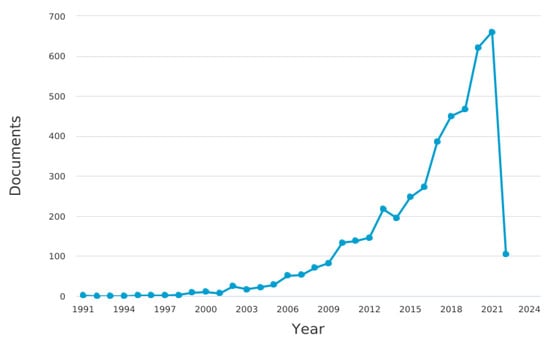
Figure 1.
Documents by year. Source: Data obtained from SCOPUS (February 2022).
With a continuously growing trend, the last five years are undoubtedly an example of the importance that the theme of sustainability in higher education has been assuming (386 documents in 2017; 449 in 2018; 466 in 2019; 621 in 2020; and 660 in 2021; with February 2022 already having 105 documents published).
Using different means of dissemination, articles, with a weight of 68.7% (3031 documents) of the types of documents published, assume greater prominence here, followed by conference papers (12.5%—551 documents) and book chapters (10.7%—472 documents) (Figure 2).
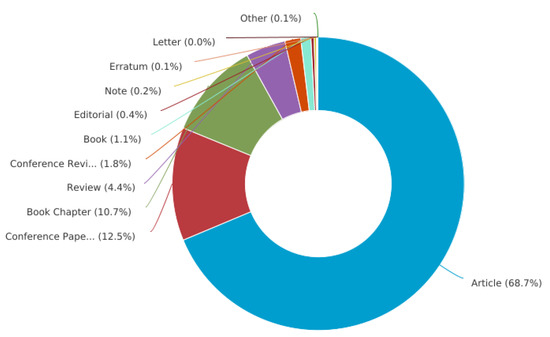
Figure 2.
Documents by type. Source: Data obtained from SCOPUS (February 2022).
Focusing our attention on published documents, it turns out that there are 5 sources that, over the years under analysis, have made more documents available in this area of research. These are Sustainability Switzerland (552), the International Journal of Sustainability in Higher Education (436), the Journal of Cleaner Production (218), the World Sustainability Series (192) and Environmental Education Research (61) (Figure 3).
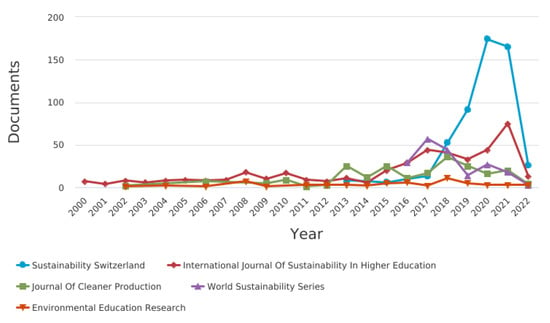
Figure 3.
Documents per year by source. Source: Data obtained from SCOPUS (February 2022).
With a strong expression in the last 5 years, these journals with the highest number of documents published, have been observing a continuous increase in their CiteScore, with particular relevance to the Journal of Cleaner Production, with a CiteScore for 2020 of 13.1, followed by Environmental Education Research with a CiteScore of 5.2 for 2020. Although, as noted above, Sustainability Switzerland is the journal that has published the most documents over the last 5 years, with regard to the CiteScore index, it is in fourth place (out of among the Top5 of CiteScores), with a value of 3.9 for the year 2020 (Figure 4).
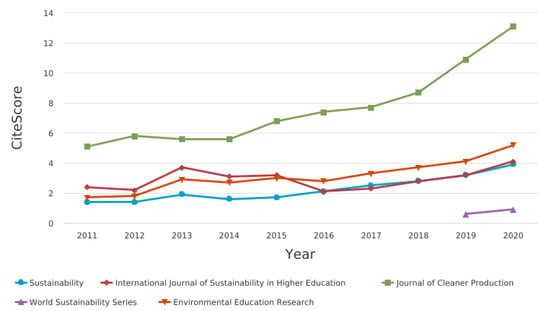
Figure 4.
CiteScore publication by year. Source: Data obtained from SCOPUS (February 2022).
However, looking to the source citations by year one can conclude that continuing the journal of Cleaner Production to assume greater prominence (with 264,001 citations in 2021—source self-citations included), it is Sustainability Switzerland that appears soon after with 142,589 citations in 2021 (source self-citations included). It should be noted that, excluding source self-citations, the number of citations decreases, respectively, to 234,906 and 114,443, a trend also manifested in the other journals (Figure 5).
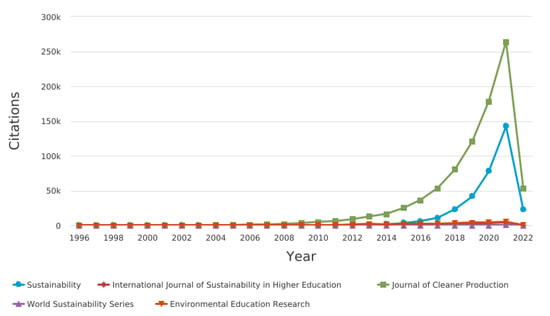
Figure 5.
Source citations by year (source self-citations included). Source: Data obtained from SCOPUS (February 2022).
As of 2012, it is important to highlight that the journal Sustainability Switzerland has been gaining prominence (compared to the other Top 5 journals) by presenting a continuous and significant increase in the (global) number of publications per year (with a peak of 14,042 documents in 2021 against 5342 documents published by the Journal of Cleaner Production) (Figure 6).
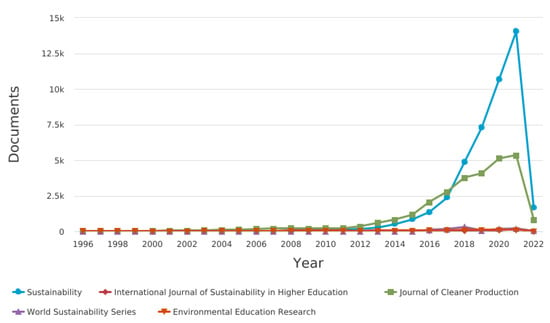
Figure 6.
Source documents by year. Source: Data obtained from SCOPUS (February 2022).
Assuming, as observed, that Higher Education is considered an important driver in the promotion and development of sustainability, there are a large number of researchers who, over the last few years, have been developing particular attention to the issue of sustainability in higher education.
Among the main researchers, one can highlight W. Leal Filho. (59 documents), R. Lozano (23), U.M. Azeiteiro (22), K. Shephard (17), I. Thomas (16) (Figure 7), undoubtedly important ambassadors of the issue of sustainability in higher education. It is important to note that as Leal Filho, W. and Filho, W.L. are the same researcher, it was decided to join the two references to this author, who is now considered as a single author.
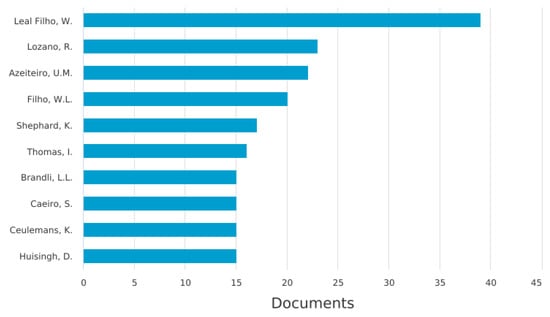
Figure 7.
Documents by author. Source: Data obtained from SCOPUS (February 2022).
In his works (and focusing only on some of the most recent), Leal Filho gives particular emphasis to themes such as sustainability at universities/higher education [24,25,26], sustainable development goals at the university/higher education [27,28], sustainability and education programs [29,30], and focusing more recently on the analysis of how sustainability teaching on sustainable development has been affected by the lockdown [31,32].
The issues of sustainable competences in higher education is one of the subjects present in Lozano’s articles [33,34,35,36], in parallel with themes related to sustainability in higher education [37,38,39], sustainable development in higher education [40,41,42], as well as sustainability in the COVID-19 times [43], among others.
Addressing his attention to similar issues like the previous focused authors, namely sustainability and COVID-19 [31], sustainable development in higher education [27,44], and sustainability in higher education [11,45], Azeiteiro in his studies also looks to give particular attention to the issues of sustainability in higher education in the Portuguese context [13,16,46,47,48,49].
Regarding Shephard, the fourth author with more published documents, it is observed that this author follows very closely the themes also studied by the aforementioned authors. Effectively, topics such as sustainability [50,51], sustainable development in higher education [52,53,54] and sustainability and competences in higher education [55,56], are themes addressed by this author.
Addressing, in the same way, the themes associated with higher education for sustainability, Thomas (the fifth author with more publications), gives particular attention to the subject of graduate sustainability [57,58,59,60], as well as the relationship between sustainability and career choices [61,62].
In the same line of thought as Côrtes and Rodrigues [63], when in their study, highlighting that an item, in order to be accounted to the scientific production of a country, requires that at least one of the authors is associated with an educational and/or research institution of that country, tell us that it is possible that the same scientific article is accounted for more than one country, also in this study is possible to observe that there are documents that are common to several authors, which means that the same scientific document can be accounted for by more than one author, institution of origin and country.
As the central focus of these documents is higher education for sustainability, it is observed that this issue has been worked on in different scientific areas. Within these, the area of Social Sciences is without a doubt the area where more studies, and consequently, publications, have been developed (34.4%—2960 documents). Next, with a significantly lower weight (17.9%) came Environmental Sciences (with 1539 documents), the Energy area (1009 docs—11.7%), Business, Management and Accounting (767—8.9%), followed by the Engineering area with 743 documents (8.6%), as can be seen in the following Figure 8. This diversity of areas is perfectly justifiable within the scope of studies on sustainability in higher education, as a result of the multidisciplinary studies carried out by the researchers. This reality is corroborated by Côrtes and Rodrigues [63], when, referring to sustainability in education, in general, tell us that the great interdisciplinarity that is felt between the scientific areas justifies the diversity of themes worked on in the various documents, compatible with the different approaches that the multiple studies at the level of sustainability in education can take.
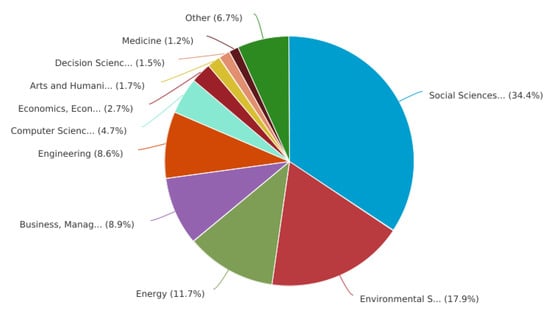
Figure 8.
Documents by subject area. Source: Data obtained from SCOPUS (February 2022).
Assuming the United States a leader role in terms of publications, with 866 documents (followed by the United Kingdom—564; Spain—392; Australia—340; and Germany—230, indicating only the 5 countries with the greatest evidence) (Figure 9.), it is observed that in terms of the affiliation of the works developed by the different authors, the institutions that stand out the most are Leuphana Universitat Luneburg (46 documents), RMIT University (with 45 documents), Hochschule fur Angewandte Wissenschaften Hamburg (44 documents), Manchester Metropolitan University (43 documents), and Arizona State University (40 documents) (Figure 10).
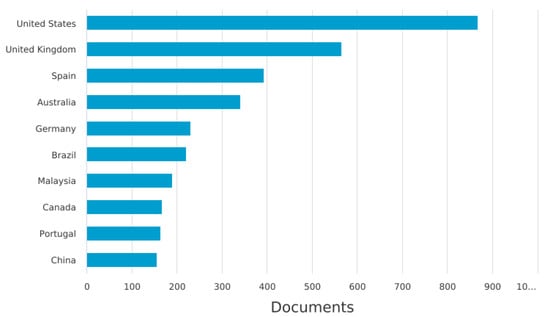
Figure 9.
Documents by country or territory. Source: Data obtained from SCOPUS (February 2022).
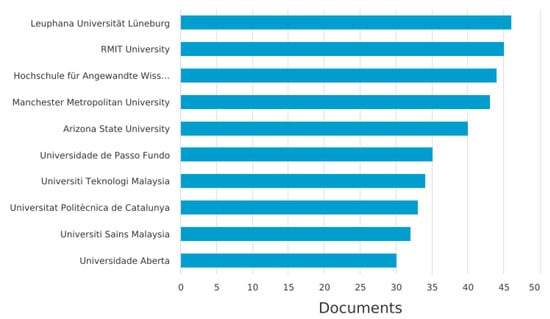
Figure 10.
Documents by affiliation. Source: Data obtained from SCOPUS (February 2022).
The analysis of the graph above allows us to corroborate the effective connection between the geographical origin and the institutions belonging to the different authors of the publications under analysis.
In order to answer the starting questions that supported this brief study, namely in what concerns “what is the reality that has been observed in terms of research in the field of higher education for sustainability”, the analysis and discussion of the obtained results allows us to conclude that publications in the area of sustainability in higher education have been observing a continuous growth over the last few years. The period 2000–2005 was undoubtedly the turning point in terms of publications in this area. Effectively, from this period onwards, a very significant increase began to be observed (28 documents in 2005 against 660 in 2021). Although being still at the beginning of 2022, the truth is that at the time the present survey is carried out (the end of February), Scopus already has 105 documents published in terms of higher education for sustainability, which reinforces the dynamics underlying this area of knowledge.
In terms of the types of publications that are most used to disseminate this information, articles are particularly prominent, followed by conference papers. In terms of published documents, Sustainability Switzerland and the International Journal of Sustainability in Higher Education are the two most prominent journals. However, when one look at the CiteScores of these journals, despite being in the Top 5, the truth is that, at this level, the highlight goes to the Journal of Cleaner Production and Environmental Education Research, the two journals that present, respectively, the two highest CiteScores.
The Journal of Cleaner Production, considering the source citations by year, undoubtedly assumes greater prominence, compared to the other journals.
It is important to highlight that, in global terms, Sustainability Switzerland is the Journal that researchers most seek to publish and disseminate their articles.
Regarding these, and seeking to answer the question “Who has contributed more in terms of research on higher education for sustainability”, are many the authors that have been developing their work in the field of sustainability in higher education. Among these, the Top 5 authors highlighted above stand out in terms of research and publication in this area of knowledge, thus contributing to a greater and more effective implementation of sustainability practices in higher education.
As it is an interdisciplinary area, the study of higher education for sustainability has been the subject of analysis in different scientific areas, among which the Social Sciences, followed by Environmental Sciences assume greater prominence.
Finally, and in response to the question “Which countries and institutions have contributed the most to the study of higher education for sustainability”, looking at a geographical and institutional perspective, it appears that the USA, UK, Spain, Australia, and Germany are the countries where more is published in terms of higher education for sustainability, origins which, incidentally, coincide with the affiliation of the institutions that stand out the most, namely Leuphana Universitat Luneburg, RMIT University, the Hochschule fur Angewandte Wissenschaften Hamburg, Manchester Metropolitan University, and the Arizona State University.
4. Conclusions
Seeking to address the issue of higher education for sustainability, the present paper, based on the SCOPUS database, and using a bibliometric analysis, has given particular focus to the analysis at the level of studies that have been developed, the main countries and institutions where this issue has been most researched, as well as the main researchers that have been working on this issue.
More specifically, the authors Top5, who have worked and published the most on the issue of higher education for sustainability, in its different dimensions, as well as the main sources of publication and the respective CiteScores, were identified. From the analysis, it is observed that it is from 2000 onwards, within the scope of the Millennium Development Goals, that this issue begins to assume greater prominence, with the number of publications observing a considerable increase over the last few years. Assuming the area of Social Sciences to be more prominent, articles published in leading journals are the main dissemination vehicles sought by different authors to disseminate their work. Evidencing great interaction between those who research, and the origins of the work developed, the affiliations of greater origin of the published documents were also identified, as well as the countries where these documents come from and more research has been developed in the field of higher education for sustainability.
It is important to point out that since SCOPUS is one of the databases par excellence that, bringing together all the source/type of documents indexed here, contributes to a complete and rigorous information on the research that has been progressively developed in this field of study, and evidencing the growing importance that the study of higher education for sustainability has assumed, other sources have emerged. Although not yet indexed, these other sources seek, nevertheless, to contribute critically and constructively to the continuous dissemination of the works that have been developed in this field, as is the case of the International Journal of Higher Education and Sustainability. Fostering discussion in what concerns the evolution of higher education for sustainability, this journal looks to emphasize the environmental, economic and social dimensions of this subject, in parallel with the cultural and political dimensions.
The present study assumes particular relevance, both in theoretical and practical terms, as it contributes to a better understanding not only of the main work that has been developed in the area of higher education for sustainability, but also of the main sources of publication in the area of the higher education for sustainabilityES (either in terms of territory/institution; or in terms of the main journals/sources), and particularly of the main authors who have been developing their research in this area, thus contributing to a more effective and comprehensive knowledge of the main developments that the study of sustainability in higher education has observed over time.
Finally, it is important to emphasize that the study developed here has important policy implications. More specifically, aware of the importance that higher education institutions assume in the promotion of sustainability issues, the present study assumes itself as an important tool and framework for the diverse HEIs and Governments (in terms of Education) of the different countries where these integrate. It allows not only to see their position in terms of research in the field of sustainability in higher education, but also to define education strategies and policies for sustainability that lead to a greater and more effective investment in promoting research in the field of higher education for sustainability.
The results obtained also contribute so that HEIs, when becoming aware of what, where and who is doing research in the field of higher education for sustainability, are challenged to review their research methods and processes, as well as their research investments in the area of sustainability in higher education. In other words, they are challenged to think about what kind of HEI they want to be.
Given the strong interaction that researchers, namely of different nationalities, establish with each other, this work is also an important contribution to reflect on the possible synergies to be developed, leading to higher levels of competitiveness and development of these institutions and countries involved.
Author Contributions
Conceptualization, C.F.M. and J.P.D.; Methodology, C.F.M. and J.P.D.; Investigation, C.F.M.; Writing—Original draft preparation, C.F.M.; Writing—Review and Editing, C.F.M. and J.P.D. All authors have read and agreed to the published version of the manuscript.
Funding
This research received no external funding.
Institutional Review Board Statement
Not applicable.
Informed Consent Statement
Not applicable.
Data Availability Statement
Data was obtained from SCOPUS data base (with permission).
Conflicts of Interest
The authors declare no conflict of interest.
References
- Hediger, W. Weak and strong sustainability, environmental conservation and economic growth. Nat. Resour. Model. 2006, 19, 359–394. [Google Scholar] [CrossRef]
- Sidiropoulos, E. Education for sustainability in business education programs: A question value. J. Clean. Prod. 2014, 85, 472–475. [Google Scholar] [CrossRef]
- Kates, R.; Clark, W.; Corell, R.; Hall, M.; Jaeger, C.; Lowe, L.; McCarthy, J.; Schellnhuber, H.; Bolin, B.; Dickson, N.; et al. Sustainability Science. Science 2001, 292, 641–642. [Google Scholar] [CrossRef] [PubMed]
- Disterheft, A.; Caeiro, S.; Azeiteiro, U.; Leal Filho, W. Sustainability science and education for sustainability development in universities: Away for transition. In Sustainability Assessment Tools in Higher Education Institutions; Caeiro, S., Filho, W.L., Jabbour, C., Azeiteiro, U.M., Eds.; Springer: Berlin/Heidelberg, Germany, 2013; Chapter 1; pp. 3–28. [Google Scholar]
- Juárez-Nájera, M. Exploring Sustainable Behavior Structure in Higher Education: A Social-Psychology Confirmatory Approach; Springer: Berlin/Heidelberg, Germany, 2015. [Google Scholar]
- Leal Filho, W.; Manolas, E.; Pace, P. The future we want: Key issues on sustainable development in higher education after Rio and the UN decade of education for sustainable development. Int. J. Sustain. High. Educ. 2015, 16, 112–129. [Google Scholar] [CrossRef] [Green Version]
- Leal Filho, W. About the role of the universities and their contribution to sustainable development. High. Educ. Policy 2011, 24, 427–438. [Google Scholar] [CrossRef]
- Reunamo, J.; Pipere, A. Doing research on education for sustainable development. Int. J. Sustain. High. Educ. 2011, 12, 110–124. [Google Scholar] [CrossRef]
- Wright, T.; Wilton, H. Facilities management director´s conceptualizations of sustainability in higher education. J. Clean. Prod. 2012, 31, 118–125. [Google Scholar] [CrossRef]
- Wright, T.; Horst, N. Exploring the ambiguity; what faculty leaders really think of sustainability in higher education. Int. J. Sustain. High. Educ. 2013, 14, 209–227. [Google Scholar] [CrossRef]
- Disterheft, A.; Caeiro, S.; Leal Filho, W.; Azeiteiro, U. The INDICARE-model—Measuring and caring about participation in higher education’s sustainability assessment. Ecol. Indic. 2016, 63, 172–186. [Google Scholar] [CrossRef]
- Leal Filho, W.; Jim Wu, Y.-C.; Brandli, L.; Avila, L.; Azeiteiro, U.; Caeiro, S.; Madruga, L. Identifying and overcoming obstacles to the implementation of sustainable development at universities. J. Integr. Environ. Sci. 2017, 14, 93–108. [Google Scholar] [CrossRef]
- Aleixo, A.; Leal, S.; Azeiteiro, U. Conceptualization of sustainable higher education institutions, roles, barriers, and challenges for sustainability: An exploratory srudy in Portugal. J. Clean. Prod. 2018, 172, 1664–1673. [Google Scholar] [CrossRef]
- Farinha, C.; Azeiteiro, U.; Caeiro, S. Education for sustainable development in Portuguese universities: The key actors’ opinions. Int. J. Sustain. High. Educ. 2018, 19, 912–941. [Google Scholar] [CrossRef]
- Aleixo, A.; Azeiteiro, U.; Leal, S. The implementation of sustainability practices in Portuguese higher education institutions. Int. J. Sustain. High. Educ. 2018, 19, 146–178. [Google Scholar] [CrossRef]
- Aleixo, A.; Azeiteiro, U.; Leal, S. Are the sustainable development goals being implemented in the Portuguese higher education formative offer? Int. J. Sustain. High. Educ. 2020, 21, 336–352. [Google Scholar] [CrossRef]
- Tejedor, G.; Segalàs, J.; Rosas, M. Transdisciplinarity in higher education for sustainability: How discourses are approached in engineering education. J. Clean. Prod. 2018, 175, 29–37. [Google Scholar] [CrossRef] [Green Version]
- Risopoulos-Pichler, F.; Daghofer, F.; Steiner, G. Competences for Solving Complex Problems: A Cross-Sectional Survey on Higher Education for Sustainability Learning and Transdisciplinarity. Sustainability 2020, 12, 6016. [Google Scholar] [CrossRef]
- Zhu, W.; Wang, Z. The collaborative networks and thematic trends of research on purchasing and supply management for environmental sustainability: A bibliometric review. Sustainability 2018, 10, 1510. [Google Scholar] [CrossRef] [Green Version]
- Rosa, A.; Chimendes, V.; Silva, L.; Mello, C. Inovação e métricas para a inovação: Uma análise bibliométrica das produções relevantes de 2004 a 2014. In Gestão do Conhecimento e Inovação, Mendonça, L., Org.; Editora Poisson: Belo Horizonte, Brasil, 2017; Volume 4, pp. 7–15. [Google Scholar]
- Fusco, G. Twenty Years of Common Agricultural Policy in Europe: A Bibliometric Analysis. Sustainability 2021, 13, 10650. [Google Scholar] [CrossRef]
- Donthu, N.; Kumar, S.; Mukherjee, D.; Pandey, N.; Lim, W. How to conduct a bibliometric analysis: An overview and guidelines. J. Bus. Res. 2021, 133, 285–296. [Google Scholar] [CrossRef]
- SDSN Australia/Pacific. Getting Started with the SDGs in Universities: A Guide for Universities, Higher Education Institutions, and the Academic Sector; Australia, New Zealand and Pacific Edition; Sustainable Development Solutions Network: Melbourne, Australia, 2017. [Google Scholar]
- Hernández-Diaz, P.; Polanco, J.-A.; Escobar-Sierra, M.; Leal Filho, W. Holistic integration of sustainability at universities: Evidences from Colombia. J. Clean. Prod. 2021, 305, 127145. [Google Scholar] [CrossRef]
- Leal Filho, W.; Wall, T.; Salvia, A.; Frankenberger, F.; Hindley, A.; Mifsud, M.; Brandli, L.; Will, M. Trends in scientific publishing on sustainability in higher education. J. Clean. Prod. 2021, 296, 126569. [Google Scholar] [CrossRef]
- Leal Filho, W.; Dinis, M.; Sivapalan, S.; Begum, H.; Ng, T.; Al-Amin, A.; Alam, G.; Sharifi, A.; Salvia, A.; Kalsoom, A.; et al. Sustainability practices at higher education institutions in Asia. Int. J. Sustain. High. Educ. 2021, in press. [CrossRef]
- Leal Filho, W.; Frankenberger, F.; Salvia, A.; Azeiteiro, U.; Alves, F.; Castro, P.; Will, M.; Platje, J.; Lovren, V.; Brandli, L.; et al. A framework for the implementation of the Sustainable Development Goals in university programmes. J. Clean. Prod. 2021, 299, 126915. [Google Scholar] [CrossRef]
- Griebeler, J.; Brandli, L.; Salvia, A.; Leal Filho, W.; Reginatto, G. Sustainable development goals: A framework for deploying indicators for higher education institutions. Int. J. Sustain. High. Educ. 2021, in press. [CrossRef]
- Tominaga, L.; Martins, V.; Rampasso, I.; Anholon, R.; Silva, D.; Pinto, J.; Leal Filho, W.; Lima Junior, F. Critical analysis of engineering education focused on sustainability in supply chain management: An overview of Brazilian higher education institutions. Int. J. Sustain. High. Educ. 2021, in press. [CrossRef]
- Zanitt, J.; Rampasso, I.; Quelhas, O.; Serafim, M.; Leal Filho, W.; Anholon, R. Analysis of sustainability insertion in materials selection courses of engineering undergraduate programmes. Int. J. Sustain. High. Educ. 2021, in press. [CrossRef]
- Leal Filho, W.; Price, E.; Wall, T.; Shield, C.; Azeiteiro, U.; Mifsud, M.; Brandli, L.; Farinha, C.; Caeiro, S.; Salvia, A.; et al. COVID-19: The impact of a global crisis on sustainable development teaching. Environ. Dev. Sustain. 2021, 23, 11257–11278. [Google Scholar] [CrossRef]
- Leal Filho, W. COVID-19, sustainable development and higher education: Towards a recovery path. Int. J. Sustain. High. Educ. 2021, 22, 138–141. [Google Scholar] [CrossRef]
- Lozano, R.; Bautista-Puig, N.; Barreiro-Gen, M. Developing a sustainability competences paradigm in Higher Education or a White Elephant? Sustain. Dev. 2022, in press. [CrossRef]
- Lozano, R.; Barreiro-Gen, M.; Pietikainen, J.; Gago-Cortes, C.; Favi, C.; Jimenez Munguia, M.; Monus, F.; Simão, J.; Benayas, J.; Desha, C.; et al. Adopting sustainability competence-based education in academic disciplines: Insights from 13 higher education institutions. Sustain. Dev. 2021, in press. [CrossRef]
- Lozano, R.; Barreiro-Gen, M.; Lozano, F.; Sammalisto, K. Teaching sustainability in European higher education institutions: Assessing the connections between competences and pedagogical approaches. Sustainability 2019, 11, 1602. [Google Scholar] [CrossRef] [Green Version]
- Lozano, R.; Merrill, M.; Sammalisto, K.; Ceulemans, K.; Lozano, F. Connecting competences and pedagogical approaches for sustainable development in higher education: A literature review and framework proposal. Sustainability 2017, 9, 1889. [Google Scholar] [CrossRef] [Green Version]
- Ceulemans, K.; Scarff Seatter, C.; Molderez, I.; Van Liedekerke, L.; Lozano, R. Unfolding the competences of the sustainability Reporting Process in higher education: A case study in the university of British Columbia. World Sustain. Ser. 2020, 1043–1070. [Google Scholar]
- Blanco-Portela, N.; Pertierra, L.; Benayas, J.; Lozano, R. Sustainability leaders’ perceptions on the drivers for and the barriers to the integration of sustainability in Latin American higher education institutions. Sustainability 2018, 10, 2954. [Google Scholar] [CrossRef] [Green Version]
- Blanco-Portela, N.; Benayas, J.; Pertierra, L.; Lozano, R. Towards the integration of sustainability in higher education institutions: A review of drivers of and barriers to organizational change and their comparison against those found of companies. J. Clean. Prod. 2017, 166, 563–578. [Google Scholar] [CrossRef]
- Lozano, R.; Barreiro-Gen, M. Analysing the factors affecting the incorporation of sustainable development into European higher education institutions’curricula. Sustain. Dev. 2019, 27, 965–975. [Google Scholar] [CrossRef]
- Findler, F.; Schonherr, N.; Lozano, R.; Reider, D.; Martinuzzi, A. The impacts of higher education institutions on sustainable development: A review and conceptualization. Int. J. Sustain. High. Educ. 2019, 20, 23–38. [Google Scholar] [CrossRef] [Green Version]
- Findler, F.; Schonherr, N.; Lozano, R.; Stacherl, B. Assessing the impacts of higher education institutions on sustainable development—An analysis of tools and indicators. Sustainability 2019, 11, 59. [Google Scholar] [CrossRef] [Green Version]
- Lozano, R.; Barreiro-Gen, M. Disrupting the brave new world: COVID-19 effects on organizations’ sustainability efforts. J. Organ. Change Manag. 2020, 34, 613–628. [Google Scholar] [CrossRef]
- Leal Filho, W.; Shield, C.; Paço, A.; Mifsus, M.; Ávila, L.; Brandli, L.; Molthan-Hill, P.; Pace, P.; Azeiteiro, U.; Vargas, V.; et al. Sustainable development goals and sustainability teaching at universities: Falling behind or getting ahead of the pack? J. Clean. Prod. 2019, 232, 285–294. [Google Scholar] [CrossRef] [Green Version]
- Caeiro, S.; Azeiteiro, U.M. Sustainability assessment in higher education institutions. Sustainability 2020, 12, 3433. [Google Scholar] [CrossRef] [Green Version]
- Aleixo, A.; Leal, S.; Azeiteiro, U.M. Higher education students’ perceptions of sustainable development in Portugal. J. Clean. Prod. 2021, 327, 129429. [Google Scholar] [CrossRef]
- Figueiredo, C.; Azeiteiro, U.; García-Vinuesa, A.; Carvalho, S. Campus decarbonization: Students’ perceptions for reducing meat consumption in a Portuguese university. Sustainability 2021, 13, 6048. [Google Scholar] [CrossRef]
- Do Paço, A.; Azeiteiro, U. Living labs for education for sustainable development in the context of higher education: Identifying triggers and drivers of development in the Portuguese Universities. In Higher Education Institutions in a Global Warming World: The Transition of Higher Education Institutions to a Low Carbon Economy; Azeiteiro, U.M., Filho, W.L., Davim, J.P., Eds.; River Publishers: Aalborg, Denmark, 2017; pp. 155–170. [Google Scholar]
- Aleixo, A.; Leal, S.; Filho, W.L.; Mendes, S.; Azeiteiro, U.M. Rankings and sustainability in Portuguese Higher Education Institutions: A descriptive analysis. In Higher Education Institutions in a Global Warming World: The Transition of Higher Education Institutions to a Low Carbon Economy; Azeiteiro, U.M., Filho, W.L., Davim, J.P., Eds.; River Publishers: Aalborg, Denmark, 2017; pp. 97–112. [Google Scholar]
- Shephard, K.; Kalsoom, Q.; Gupta, R.; Probst, L.; Gannon, P.; Stanthakumar, V.; Ndukwe, I.G.; Jowet, T. Exploring the relationship between dispositions to think critically and sustainability concern in HESD. Int. J. Sustain. High. Educ. 2021, 22, 1166–1185. [Google Scholar] [CrossRef]
- Shephard, K.; Furnari, M. Exploring what university teachers think about education for sustainability. Stud. High. Educ. 2013, 38, 1577–1590. [Google Scholar] [CrossRef]
- Shephard, K. Higher education for sustainable development: Learning gains or learning losses? Int. Perspect. High. Educ. Res. 2021, 14, 117–130. [Google Scholar]
- Shephard, K.; Brown, K. How democratic is higher education for sustainable development? Discourse 2017, 38, 755–767. [Google Scholar] [CrossRef]
- Shephard, K.; Dulgar, P. Why It Matters How We Frame “Education” in Education for Sustainable Development. Appl. Environ. Educ. Commun. 2015, 14, 137–148. [Google Scholar] [CrossRef]
- Shephard, K.; Rieckmann, M.; Barth, M. Seeking sustainability competence and capability in the ESD and HESD literature: An international philosophical hermeneutic analysis. Environ. Educ. Res. 2019, 25, 532–547. [Google Scholar] [CrossRef]
- Shephard, K.; Brown, K.; Guiney, T. Researching the professional-development needs of community-engaged scholars in a New Zealand university. Sustainability 2017, 9, 1249. [Google Scholar] [CrossRef] [Green Version]
- Holdsworth, S.; Sandri, O.; Thomas, I.; Wong, P.; Chester, A.; McLaughlin, P. The use of the theory of planned behaviour to assess graduate attributes for sustainability. Environ. Educ. Res. 2020, 26, 275–295. [Google Scholar] [CrossRef]
- Holdsworth, S.; Sandri, O.; Thomas, I.; Wong, P.; Chester, A.; McLaughlin, P. The assessment of graduate sustainability attributes in the workplace: Potential advantages of using the theory of planned behaviour (TPB). J. Clean. Prod. 2019, 238, 117929. [Google Scholar] [CrossRef]
- Sandri, O.; Holdsworth, S.; Thomas, I. Vignette question design for the assessment of graduate sustainability learning outcomes. Environ. Educ. Res. 2018, 24, 406–426. [Google Scholar] [CrossRef]
- Sandri, O.; Holdsworth, S.; Thomas, I. Assessing graduate sustainability capability post-degree completion: Why is it important and what are the challenges? Int. J. Sustain. High. Educ. 2018, 19, 2–14. [Google Scholar] [CrossRef]
- Thomas, I. Influences on career choice: Considerations for the environmental profession. Environ. Pract. 2017, 19, 115–127. [Google Scholar] [CrossRef]
- Thomas, I.; Depasquale, J. Connecting curriculum, capabilities and careers. Int. J. Sustain. High. Educ. 2016, 17, 738–755. [Google Scholar] [CrossRef]
- Côrtes, P.; Rodrigues, R. A bibliometric study on “education for sustainability”. Braz. J. Sci. Technol. 2016, 3, 8. [Google Scholar] [CrossRef] [Green Version]
Publisher’s Note: MDPI stays neutral with regard to jurisdictional claims in published maps and institutional affiliations. |
© 2022 by the authors. Licensee MDPI, Basel, Switzerland. This article is an open access article distributed under the terms and conditions of the Creative Commons Attribution (CC BY) license (https://creativecommons.org/licenses/by/4.0/).

